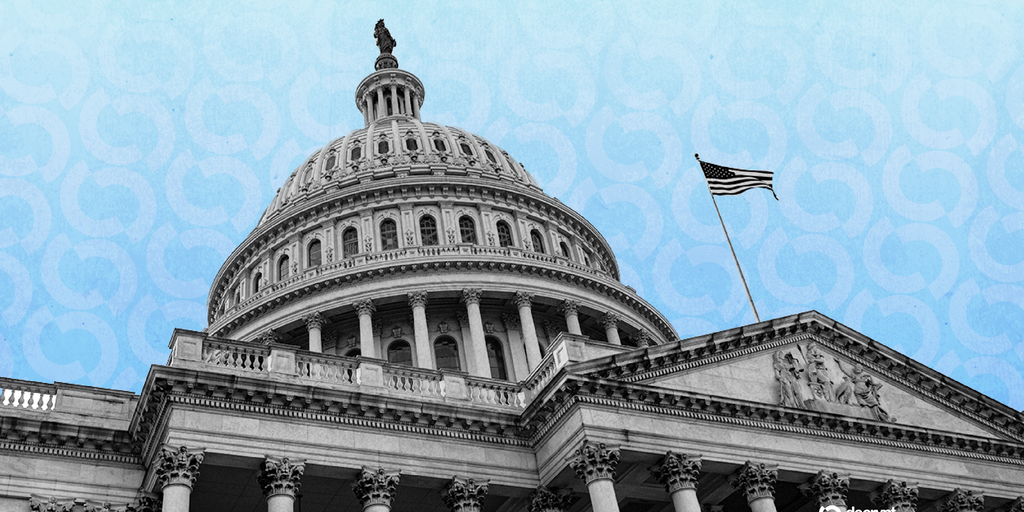After months of dramatic starts and stops, the U.S. Senate successfully passed the GENIUS Act Tuesday afternoon, a landmark bill that formally establishes a framework for issuing and trading stablecoins in the United States.
Stablecoins are crypto tokens typically pegged to the U.S. dollar that allow users to enter and exit crypto positions without accessing dollars directly. For this reason, they are a key ramp between the crypto ecosystem and traditional financial markets.
In recent months, America’s top banks, key Wall Street players, retail heavyweights like Walmart, and tech giants like Amazon have all expressed interest in developing their own stablecoins, intrigued by various incentives ranging from collecting yield on customer deposits to dodging costly traditional payment processing fees. It’s widely expected that once stablecoin legislation is signed into law, the floodgates from Wall Street and the American banking sector will open, potentially bringing trillions of dollars into the crypto market.
“A thriving stablecoin ecosystem will drive demand from the private sector for US Treasuries, which back stablecoins,” U.S. Treasury Secretary Scott Bessent said Tuesday afternoon. “This newfound demand could lower government borrowing costs and help rein in the national debt. It could also onramp millions of new users—across the globe—to the dollar-based digital asset economy.”
Crypto industry leaders immediately hailed today’s vote as a landmark victory for the sector.
“The U.S. approving its first major federal legislation focused on stablecoins is a pivotal step in shaping the country’s digital asset future and addressing oversight of the rapidly growing digital asset ecosystem,” Liat Shetret, vice president of Global Policy and Regulation at Elliptic, a blockchain intelligence firm, said in a statement shared with Decrypt.
“This is a win for the U.S., a win for innovation, and a monumental step towards appropriate regulation for digital assets in the United States,” Amanda Tuminelli, executive director of the DeFi Education Fund, an industry lobbying group, said in a statement also shared with Decrypt.
The GENIUS Act now needs to pass a vote in the House before it can be sent to President Donald Trump’s desk for signature. That vote may not be imminent, however.
Despite insistences from top Senate Republicans that the GENIUS Act should be signed into law as soon as possible—ideally, by July 4—House Republicans have their own stablecoin bill and may want to combine it with the flailing, more broadly impactful crypto market structure bill to give the combined legislation higher odds of passage through both chambers.
The coming weeks could thus see something of a standoff between Senate and House Republicans, who have competing incentives about which crypto bills to pass, and when, multiple crypto policy leaders told Decrypt.
The White House did not respond when asked by Decrypt if the president would sign the GENIUS Act as a standalone bill or whether he’d wait until both stablecoin and crypto market structure legislation were passed to sign both at once. The White House, however, directed Decrypt to a statement made earlier today by Bo Hines, executive director of the President‘s Council of Advisors on Digital Assets, championing the GENIUS Act and pushing for its passage.
“This is only the first step,” Sen. Cynthia Lummis (R-WY) said Tuesday on the Senate floor. “Congress must pass comprehensive market structure legislation in the coming months.”
Lummis added she hopes to pass market structure legislation in the Senate by the end of 2025.
Even getting the GENIUS Act passed in the Senate was no foregone conclusion. Just last month, the bill failed to pass a key procedural vote in Congress’ upper chamber, after pro-crypto Democrats withdrew their support from the legislation.
Several factors contributed to the about-face, but the most glaring were repeated crypto- and stablecoin-related announcements made by the president and his family’s various digital asset businesses, which stirred anger among Democrats over perceived conflicts of interest in the White House.
The GENIUS Act was updated after the fracas to include additional language on conflicts of interest, one concession that got many Democrats back on board. The bill, however, still allows the president, the vice president, and their families to engage in stablecoin-related ventures while in office. USD1, the stablecoin launched by the Trump family’s crypto platform, World Liberty Financial, is currently the eighth-largest such asset in the world by market capitalization.
Your Email









